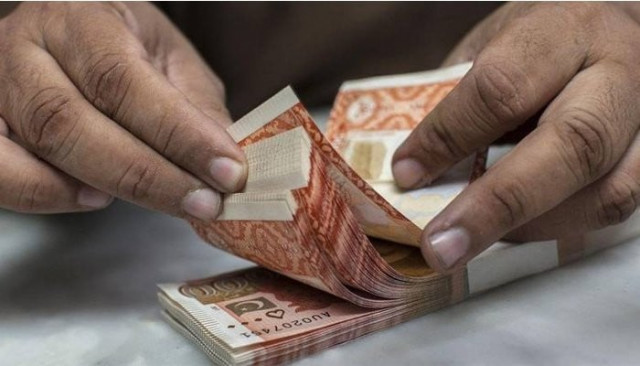Rupee declines on second consecutive day
.

In the inter-bank market on Tuesday, the Pakistani currency experienced a slight decline of Rs0.03, closing at Rs277.67 against the US dollar. This drop marks the second consecutive day of depreciation for the rupee, largely driven by an increase in demand for the greenback, primarily due to heightened import activities.
According to data from the State Bank of Pakistan (SBP), the currency has depreciated by a total of Rs0.15 over the past two days, having recently reached a six-month high of Rs277.52 per dollar last Friday. This downturn in the value of the Pakistani rupee coincides with a recovery in international petroleum prices, which have surged to around $80 per barrel from approximately $70 per barrel in recent times.
Particularly, the Middle East has notably increased the commodity price for Asian buyers to $80 per barrel, further impacting Pakistan's financial landscape. Pakistan heavily relies on imported energy with the country allocates around one-fourth of its total import bill to energy purchases, making it particularly vulnerable to fluctuations in global oil prices.
As bank financing to the private sector rises, the demand for foreign currency for imports is expected to surge even further in the coming days.
Meanwhile, the Exchange Companies Association of Pakistan (ECAP) reported a slight uptick of Rs0.03 in the open market, where the dollar closed at Rs279.66. The exchange rate in the open market has continued to improve, particularly after the central bank extended the deadline for exchange companies to continue importing the greenback in cash form until June 30, 2025.
Despite the news that Pakistan has secured a commitment for new financing worth $3.2 billion from various multilateral and bilateral creditors, including $1.2 billion from Saudi Arabia, the inter-bank market has largely overlooked this development. Additionally, Pakistan has prepared proposals to present its projects to an upcoming Saudi delegation this week, hoping to attract multi-billion-dollar investments, especially in the petroleum refining sector.


















COMMENTS
Comments are moderated and generally will be posted if they are on-topic and not abusive.
For more information, please see our Comments FAQ